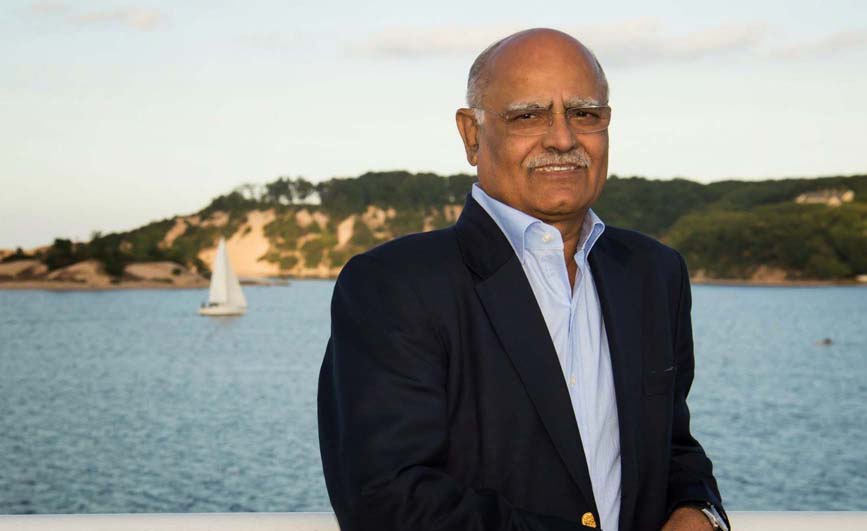As Messenger Becomes the Message, Media Must Scrutinise Itself to Retain Reliability

The media is under threat from within. It is no longer seen as a
credible medium. Its messages are massacred mercilessly. Never before
has its credibility and dependability been under so much scrutiny.
Profanities like crooks, paid media, sponsored news brokers, and
‘bhakts’ are heaped on journalists. As competitive and confrontationist
politics, coupled with valuation and TRP-driven media organisations,
dictates political engagement, the entire tribe has been tarred
unilaterally with the black brush of scepticism. Numerous news outfits
and prominent journalists are being exposed for their coloured
ideological views instead of being lauded for earth-shattering news
breaks. They are known for what they speak and not by what they write.
Agenda-driven opinion and biased news peddled by some of us as
‘exclusive’ or explosive stories drive the print and electronic media.
This has provided political parties and their promoters tactical tools
to destroy the fourth pillar of democracy. Are newspersons the most
preferred targets because they are asking too many inconvenient
questions? Or because some of us do not mind our own business and meddle
in someone else’s?
For the past few months, it is not political
leaders but the media, which has been targeted by the social media and
rampant rumour-mongers to tar and test the image of the journalists as a
genre. Last week, over half a million references were made on myriad
Internet platforms to unnamed scribes, who are suspected to be involved
in defence deals in the past few years. According to media reports, one
of the journalists was called for interrogation by investigative
agencies. Another is under their scanner for receiving prodigious payoff
from defence dealers. The agencies are yet to come to any conclusion.
By not naming and shaming the journalists, the ruling establishment and
power-seekers are shifting the blame from the real culprits to the
fringe players. Journalists involved in shady criminal deals should be
treated at par with other suspects. By revealing their names in public
interest, the profession’s credibility as a whole will be rescued from
ignominious insinuations. Jurists and legal luminaries are convinced
that by going public with the names of those summoned for questioning on
their role in the AgustaWestland and Rafale deals would only strengthen
the case of the agencies and save various institutions from becoming
victims of a sinister scheme.
Defence procurements are a major
source of tainted money worldwide. Many global leaders have been named
in scandals involving defence deals. It’s been proved that loot stashed
in tax havens was from purchasing hardly required defence equipment.
Over the past four decades, a multitude of dirty deals on Bofors guns,
Scorpene submarines and fighter aircraft have been exposed. Since the
Congress ruled India for over five decades, most such deals were signed
on its watch; hence its leaders and followers have always been perceived
as the suspects or beneficiaries. As India spends over $12 billion
annually on importing defence hardware and software, this provides
enough scope for middlemen, senior officials and their political masters
to tailor specifications according to the highest bidder’s wishes. As
the market for weapons, including fabulous flying machines, grows,
multinationals hustling them use sophisticated skills to influence the
decision-making process in the government. Some in the media and defence
analysts and security experts have become the most sought-after
influence peddlers. These corporations fund a multitude of well-funded
think-tanks in the US, Europe and the UK to enrol prominent journalists,
opinion writers and retired defence officials as faculty members or
visitors. Many of these think-tanks have opened shop in India to
camouflage their real mission. According to reliable sources, the
government has already started the scrutiny of Indian frequent flyers,
who spread their carbon footprint to participate in seminars dealing
with defence and strategic issues. The inquiry is also aimed at
unearthing the financial supporters of the think-tanks to discover if
the defence industry is supporting any of the big fish. Some Indian
civil servants, journalists and opinion-makers have been part of these
institutions for short or long durations.
Undoubtedly, there are
some bad apples in the media basket. But that doesn’t give the enemies
of freedom of expression the right to kill the medium through the
massive and ominous use of state machinery, corporate muscle power and a
malicious whisper campaign through the social media. With the rise of
trolls as the most effective agents to counter propaganda-driven
dissemination of views and news, the mainstream media is under pressure
to mend the way it reports news. Some of us have gone cyber-active not
to give news but unpalatable views against the established political and
corporate order. Once journalism was an institution, which encouraged
hard news rather than advertising the faces behind it. Young journalists
were told to report facts and carry both sides of a story. Now many
credible civil society leaders feel that numerous journalists draw
conclusions first and use convenient facts to bolster their
predetermined views. Many journalists express their opinions on the
social media in a way that exposes their ideological or personal
predilections. Some names are associated with a leader or a party. As
journalists and media owners claim to be serving the public cause, they
are entitled to all the facilities and courtesies available to other
institutions performing similar responsibilities. But if the media has
to retain its reliability, it has to subject itself to robust scrutiny.
All mediapersons should follow the same rules and regulations, which
elected representatives do. The declaration of assets, contacts,
corporate and political affiliations and sources of income by leading
journos and editors would definitely help in restoring the people’s
faith in the profession. So far, the media had the monopoly of seeking
accountability in others. Times have changed. Now readers and
viewers—the real patrons of the media—are asking it to be accountable or
perish.
prabhuchawla@newindianexpress.com; Follow me on Twitter @PrabhuChawla

No comments:
Post a Comment